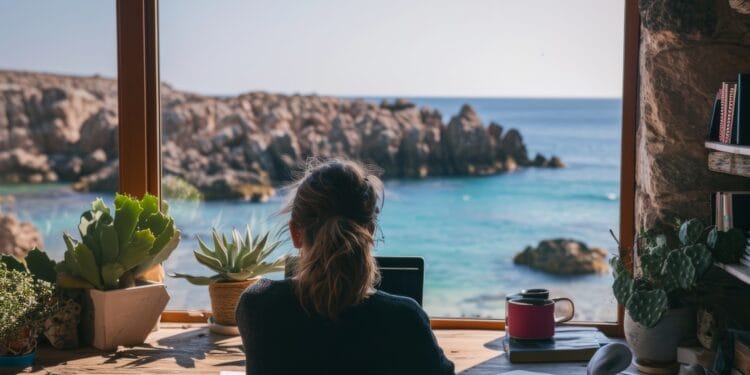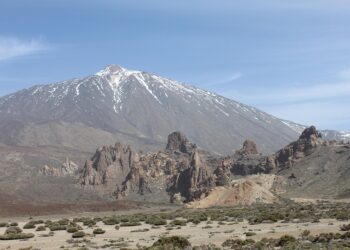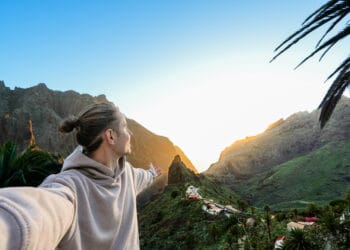Why Tenerife is Quietly Becoming Europe’s Digital Nomad Capital (And It’s Not What You’d Expect)
Right, let’s talk about something that’s been bubbling under the surface for a while now. You know how everyone’s been banging on about Lisbon and Barcelona for digital nomads? Well, there’s this little Canary Island that’s been quietly stealing the show, and honestly, I think it’s about time we gave it the attention it deserves.
I’m talking about Tenerife, and before you roll your eyes thinking “oh great, another beach destination,” hear me out. This isn’t your typical sun and sangria story.
The Tenerife You Haven’t Heard About
When most people think of Tenerife, they picture package holidays and all inclusive resorts. Fair enough, that’s been the island’s bread and butter for decades. But there’s this whole other side that’s been developing, almost by accident, and it’s absolutely perfect for remote workers.
The thing is, Tenerife has something most digital nomad hotspots don’t: proper infrastructure that wasn’t built yesterday. We’re talking about fibre internet that actually works (I’m looking at you, Canggu), reliable electricity, and a healthcare system that won’t leave you panicking if something goes wrong.
Plus, and this might sound mad, but the time zone is brilliant. You’re on GMT in winter, GMT+1 in summer. That means you can easily work with both European and American clients without completely destroying your sleep schedule. Try doing that from Thailand.
The Numbers That’ll Make You Think Twice
Here’s where it gets interesting. According to recent data from the Canary Islands government, the number of registered remote workers has increased by 340% since 2020. That’s not a typo.
The cost of living? You’re looking at roughly €1,200-1,800 per month for a decent lifestyle, including accommodation. Compare that to €2,500+ in Lisbon or the eye-watering prices in Amsterdam, and suddenly that flight to the Canaries doesn’t seem so mad.
But here’s the kicker; you get 300+ days of sunshine per year. I mean, when was the last time you had a proper vitamin D deficiency scare?
What Nobody Tells You About Working From Paradise
Now, I’m not going to pretend it’s all perfect. There are some things you need to know before you pack your MacBook and head off into the sunset.
The internet situation: Yes, it’s good, but it’s not London good. Most places you’ll get 50-100 Mbps, which is fine for video calls and uploading content, but if you’re doing serious data work, you might want to invest in a backup connection.
The social scene: This isn’t Bali where you’ll bump into five other nomads at every café. The community is smaller, more intimate. Some people love this; you actually get to know people properly. Others find it a bit limiting after a few months.
The weather paradox: Sounds daft, but constant good weather can actually be a bit… monotonous? I know, I know, first world problems. But there’s something to be said for seasons giving your year some structure.
Where the Magic Actually Happens
The real sweet spots aren’t where you’d expect. Everyone talks about Santa Cruz or Puerto de la Cruz, but the nomad scene is actually thriving in places like La Laguna (university town, proper café culture) and even some of the smaller coastal towns.
There’s this co-working space in Adeje that overlooks the ocean – I won’t lie, it’s pretty hard to concentrate when there are dolphins swimming past your window. But somehow, people seem to get more done there than in traditional offices.
Digital Entertainment and Downtime
One thing that’s worth mentioning, and this might sound a bit random, is how the digital entertainment scene has adapted to the nomad lifestyle. When you’re working odd hours to sync with different time zones, sometimes you need a bit of downtime that fits your schedule.
The online gaming and gambling industry has really embraced this shift. There’s been a massive growth in platforms that cater to people who aren’t tied to traditional 9 to 5 schedules. Whether it’s poker tournaments that run at convenient times for European nomads, or casino games you can dip into during a break between client calls, the options have expanded considerably. Independent casino platforms often provide more flexible, personalised experiences than the big corporate sites (source: https://casinobeats.com/uk/online-casinos/independent-casinos/).
Obviously, this isn’t for everyone, and like anything involving money, it’s important to be sensible about it. But it’s interesting how these industries have adapted to serve the nomad community.
The Practical Bits You Actually Need
Visa situation: If you’re British, you get 90 days visa free. EU citizens can stay indefinitely. For longer stays, Spain’s new digital nomad visa is actually one of the more straightforward ones to navigate.
Banking: Most major banks have branches here, and you can sort out a Spanish account relatively easily if you’re staying long term.
Transport: You don’t need a car, but it helps. The bus system is decent, and there are plenty of car sharing options.
Frequently Asked Questions
Is the internet really reliable enough for important video calls?
In the main towns, absolutely. I’ve done client presentations without a hitch. Just avoid the really remote mountain villages if your work depends on connectivity.
What about the language barrier?
English is widely spoken in tourist areas, but learning some Spanish will massively improve your experience. The locals really appreciate the effort.
How’s the food scene for someone working long hours?
Brilliant, actually. Lots of healthy options, fresh fish, amazing local produce. Plus, the Spanish eating schedule means you can work through the afternoon heat and enjoy proper evening meals.
Is it safe for solo travellers, especially women?
Very safe. Spain has low crime rates, and Tenerife feels particularly secure. Obviously, use common sense, but I’ve never felt unsafe here.
The Bottom Line
Look, Tenerife isn’t going to be the next Lisbon; it’s too small, too specific. But maybe that’s exactly why it works. It’s got this sweet spot of being developed enough to actually live and work comfortably, but not so overrun that you’re competing with hundreds of other nomads for the same flat or café table.
The island’s got character, proper infrastructure, and that rare combination of being both relaxing and stimulating. Plus, if you ever get tired of the beach (unlikely, but still), you’ve got a bloody great volcano to climb.
Is it perfect? No. Will it work for everyone? Definitely not. But if you’re looking for somewhere that offers a genuine alternative to the usual nomad trail, somewhere you can actually get work done while living well…, you might want to start looking at flights to Tenerife.
Just don’t tell everyone, yeah? Some of us quite like having a bit of space on the beach.















